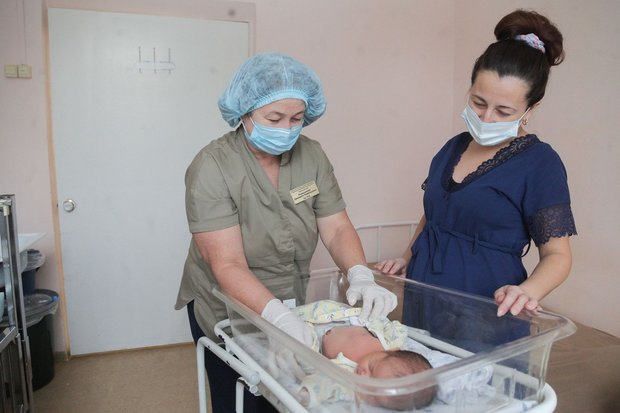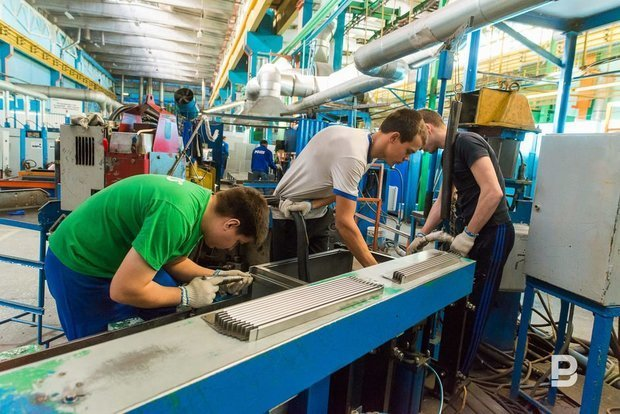Galina Akhmerova: ‘It is in companies’ interests to start working with the youth right now’
Why 8 billion people on the planet is not enough and how the labour market in Russia gets younger, the expert explains
The last year was turbulent not only for the Russian economy in general but also the labour market. But together with key trends — an outflow of staff and search for new personnel caused by the special military operation and the mobilisation, a rise in demand for IT specialists instead of those gone — a positive factor can be singled out. For instance, businesses started to hire teenagers. According to the Ministry of Economic Development, 77,000 minor Russians from 14 to 18 were registered as self-employed people. In an op-ed column for Realnoe Vremya, founder of Darwin Modern Education Accessibility Development Fund and creator of Round career guidance app for teenagers and Galina Akhmerova writes more about how the labour market in Russia is rejuvenating.
Promotion of natality as “top priority”
As of 15 November 2022, the population of the Earth reached 8 billion people, reads the official website of the UN, despite the pandemic and world wars.
And while many are discussing the overpopulation of the earth, Elon Musk, the founder of SpaceX and father of six children, assumes that we should be concerned about the fall in the birth rate. The entrepreneur shared these fears on his account noting a general decrease in natality after the pandemic (from 2019 to 2020, the USA demonstrated the lowest birth rate in the country in the last 40 years).
At the opening of the Parliament’s session in January 2023, Japan’s Prime Minister Fumio Kisida declared addressing the falling birth rate as “top priority” of his administration saying that the policy on children and childcare is the most effective investment in the future. A record-low birth rate was registered in Japan in 2022 — 800,000 people. The decline had been lasting for many years. To compare, there were 2,09 million newborns in 1973. The premier feared that if the tendency maintained the same pace, the state would simply not be able to perform basic social functions.

The situation in Russia is same: according to the Russian Statistics Service, in the first half of 2022, the birth rate reduced by 6,3%. Just 1,3 million babies were born in 2021. It is the lowest figure in the last 10 years.
According to First Vice Minister of Labour and Social Protection Olga Batalina, the number of women of childbearing age will start to grow insignificantly only after 2026: “In the last 10 years, the number of women from 20 to 29 years dropped almost by 40%, or by 4,6 million people, and totalled 7,2 million people as of 1 January 2022.”
The share of Russians born in the 1990s is much smaller than those born in the 1980s. And this will have an impact on the whole economy and the labour market in particular.
How staff gets younger in Russia
How does the labour market in Russia rejuvenate?
What stimulation measures are already taken and can the further development of events be forecasted?
The mass media note that the number of vacancies for young job seekers including teenagers under 14 increased on Avito: in 2022, offers for candidates younger than 14 years rose by 59%, more than 200,000 positions with working conditions suitable for teenagers were posted during the year. By mid-January 2023, the platform had over 12,000 invitations of work available for people under 14 years. The activity of young candidates in the search for work increased by 53% in 2022. Analysts of hh.ru also note the activity of the segment: Russian employers invited teenagers for a job interview 360,000 times in October 2022 through their service. Educational institutions and companies working in services for businesses paid attention to such candidates more often.
The state also supports businesses by issuing a law simplifying the rules of employment of minors. It envisages amendments to the Labour Code that will change the procedure of hiring such job seekers.
In any case, the change in the population landscape will lead to an additional rise in competition and demand for highly qualified staff. The lads will have to start working earlier like it is happening now in India where the salary becomes the basis of survival for the population. Unfortunately, the early fully-fledged work experience doesn’t always bring candidates to improving their education degree. While an endless career hunt for talented candidates ends up with burnout and visits to a psychologist like it happened to the entire generation of Millennials.

“Find cool lads before they are all gone”
Promotion of the birth rate can lead to a great overpopulation of the planet, which will again facilitate the rise in costs to “service” populations. In my opinion, globally, technologies can solve the problem: process automation will improve all spheres of life. However, the birth rate will decrease with a better quality of life. Here it will be important to keep it at a certain level to not to be a hostage of circumstances like it is happening now in developed countries where the death rate exceeds the birth rate.
I am for developing a staff policy together with regional and municipal development programmes. Regions would get additional funding for development, while in case dedicated companies of a sector are present at the place where the staff potential is trained, this would increase the income of regions themselves. We get both a demand for staff and highly skilled specialists.
- Integrated approaches are needed to solve the problem of raising the quality of the labour market and stimulate it.
- Companies should work closer with specialised universities. Big corporations should be responsible for co-financing and organisation of summer internships and further employment of young specialists.
The staff problem is closely linked with maintaining a comfortable social environment and life in regions Therefore it is important to not only keep highly skilled staff in Russia. It is no less important that they not leave their regions. Employers and local authorities should elaborate scholarships and targeted on-the-job training.
So it is in companies’ interests to start working with the youth right now. Find cool lads until they are all gone. This applies to not only IT and digital jobs.
Reference
The author’s opinion does not necessarily coincide with the position of Realnoe Vremya’s editorial board.